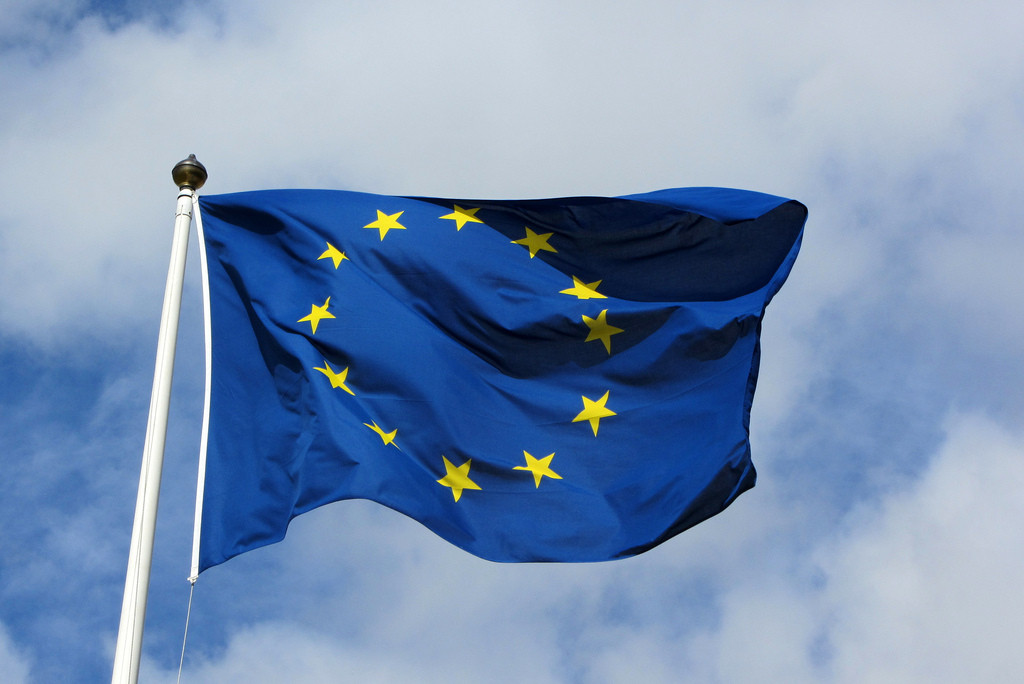Northern Ireland’s stake in the EU debate
The Northern Ireland media has been busy over the past couple of weeks speculating as to the composition of our new Executive. Now that is settled, for a while at least, and our attention is ready for the great issue of the European referendum.
Or is it? For a region with arguably the strongest and simplest reasons of any to vote Remain: our eligibility for European funding (on the related grounds of being both disadvantaged and post-conflict) our high proportion of farmers and our long and much-traversed border with the Irish Republic, our enthusiasm comes across as decidedly muted.
The popular name for the issue doesn’t help. In a region which is a part of the United Kingdom, but decidedly not of Great Britain, the adjective ‘British’ represents a contentious political statement rather than a simple description. For the majority, who would describe themselves as Irish or Northern Irish, a ‘British exit’ doesn’t sound like anything to do with us. The tone of the mainstream arguments reinforces this disconnect, suggesting that the question is primarily one for England, with possible implications for Scotland. What it might mean for the west, either Wales or Northern Ireland, is seldom mentioned.
Another factor smothering debate is the bizarre stance of the DUP. Despite its entire economic policy being based on ‘inward investment’, the provision of incentives for multinational corporations to set up shop in and around Belfast, it insists on being staunchly pro-Leave. The question of why any US company would come north of the border if it failed to provide a European foothold doesn’t seem to have occurred to it. Cynics might suggest that is because economics doesn’t have anything to do with the choice: that a pro-Brexit position simply allows the DUP to distinguish itself both from its Sinn Fein Executive colleagues (whom it must be seen to abhor) and from its Ulster Unionist rivals (whom it really does). From that point of view, the ‘Br’ of Brexit doesn’t do any harm at all.
The DUP’s stance isn’t just damaging in itself, diametrically opposed to the actual interests of the people of Northern Ireland and providing provincial cover for the Brexiteers, but it makes genuine conversation far more difficult. Once Sinn Fein and the SDLP are on one side, and the DUP and TUV on the other, the slight weight of the UUP isn’t enough to prevent this looking like yet another identity issue. Having just emerged from a toxic and sectarianised election campaign, the last thing that decent people want is to be plunged back into all that poison. Much more civilised to ignore the whole thing and enjoy the unusual sunshine.
And I think there may be a third reason why we’re not jumping up and down shouting for a Remain vote. Whether it is actually the case or not (and I suspect not) it feels as though we’ve received a lot from the European Union. ‘Peace funding’ though miniscule in comparison to war, bank, and fossil fuel funding, is highly visible, as are building and infrastructure renovations and upgrades. But people don’t like to feel that they’re always taking. There’s an awkwardness, a shame, ultimately a resentment associated with being a perpetual recipient of someone else’s charity. Being told that you’re doing well out of Europe isn’t necessarily an incentive to vote to stay in it. It’s certainly not an encouragement to talk about how you’re planning to vote.
All of which is a great pity, because the most important contribution of the European Union to Northern Ireland isn’t money at all. It’s the tools it gives us to find solutions to some of our deepest and most intractable problems.
Take that central issue of identity. Binary alternatives of nationalist or unionist (unionism itself, of course, being just a different variety of nationalism) allow little by way of movement without a sense of betrayal. When the only significant geopolitical building block is the nation state, it’s a zero-sum game: if I drop out of line on my side, the other side will grow correspondingly stronger. Even if I don’t care much, I owe it to my family and forebears to keep the faith.
Europe seems to offer, though the offer hasn’t yet been accepted, a framework in which those identities needn’t be so exclusive or so critical. Just as, with sister parties across all the relevant islands as well as further afield, the Green Party in Northern Ireland is able to transcend the constitutional boxes that other, even ‘cross-community’ parties fall into, so a European identity should be able to encompass, without obliterating, differing traditions.
A second, more tangible, problem is that of our environment and its health consequences. Northern Ireland has a woeful record of environmental protection and enforcement, even by the UK’s generally dismal standard. It has only been concealed thus far by the fact that we have a lot of land, very few people, generally indifferent politicians and civil servants and a external image in which only paramilitaries figure. European directives are widely flouted, but can, with time, patience and resources, bring about dramatic victories for common sense, sustainability and the health of our children. Leaving Europe would be to hand back those most valuable tools, and to entrust our landscape, wellbeing and future to the corporate cheerleaders of Stormont and Westminster.
And finally, in a European context, we can and should be bolder in asserting our rights. We are still trapped by a recent history in which ‘rights’ were something that one side asked for, and the other was determined to withhold. The narrative legacy of that imbalance continues, so that even now, in respect of LGBTQ and reproductive rights, political parties are not only unrepentant but self-congratulatory about withholding them. Again and again, it has been European human rights legislation which has forced Stormont into the sunlight.
As I write, we have three more weeks until the referendum. If it is as close as it looks as though it might be, Northern Ireland’s few votes could make all the difference. But that’s not the only, or even the main reason why I’m talking about it, and I hope that my neighbours will too. For us, more than for anywhere else in the UK, the European dimension is critical. It gives us the means to dismantle the barriers of the past, to forge renewed identities, to speak louder than the dreary squabbles of Stormont and to build our own future. We in Northern Ireland don’t just need to remain in Europe, we need to claim it.



Leave a Reply